Reflecting on 2022: Learnings and Accomplishments
Dear Friends of Book Sprints
During 2022, hybrid online and remote Book Sprints became a thing. We combined what we learned about online Book Sprints during the pandemic with our in-person Book Sprint process into a hybrid format. It allowed us to help people from all over the world and across time zones to write their book in 5 days.
We also continued with what we are really good at: technical documentation. We visited Cisco Campus twice in San Jose, and held another virtual Book Sprint for Cisco. We also sprinted with Hindawi in London, a handbook for their journal development platform and process.
We facilitated several groups from universities and organizations on cutting-edge topics, with some new clients and some familiar faces, and saw a number of books being published for print and online.
Book Sprints for tech companies
Each Book Sprint is unique and gives us the opportunity to expand our method. Nowadays, Book Sprints is recognized as a highly effective process for tech giants and open source communities alike. We talked to Book Sprints’ founder Adam Hyde about the motivation and the obstacles when first developing the method for rapid technical documentation 15 years ago, and how it eventually got established in the industry.
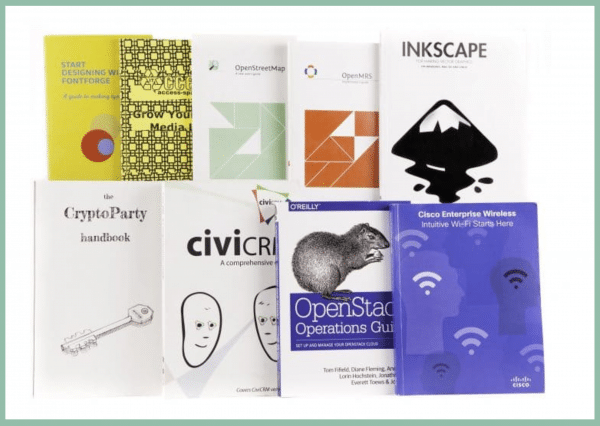
The evolution of Book Sprints for software manuals
Hybrid Book Sprints
In April and July 2022, groups of authors from various Cisco departments in San Jose, California – Technical Marketing, Engineering, Sales and UX – sprinted two books each in five days. Both of these projects were supported by remote Cisco colleagues in Europe. Thanks to the technological setup available at the Cisco offices and the hybrid Book Sprint format, we collaborated across time zones and countries. We wrote a book on Cisco’s AI approach to digital transformation and one on their software-defined access for different industries. We also held a virtual Update Sprint with another group to update the third version of the Cisco Catalyst 9000 Switches book.
In September, a committed group of colleagues came together in London to write the Journal Development Handbook. A few of the key participants worked from home, joining their colleagues in the office remotely through video conferencing, online text editors, and brainstorming boards. It requires a bit of extra discipline to include remote participants in each group discussion, but the team was motivated and patient, and the screen and room microphone did a great job. The outcome of this Sprint is not only a book, but also a beautiful and searchable book website.
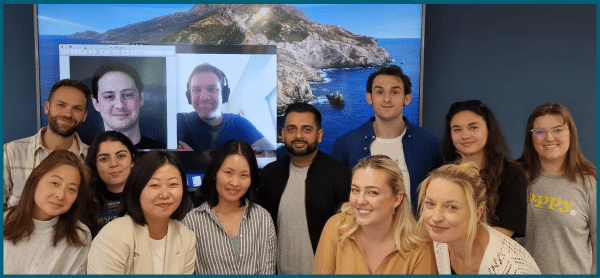
Participants of the hybrid Hindawi Book Sprint
Book Sprints on cutting-edge topics
In the heat of summer in Detroit, Disco Network came together to write the book Digital Optimism. Headed by Lisa Nakamura from the University of Michigan, these experts on technology, race, and disability foreground questions about the cultural implications of technology to envision a new anti-racist and anti-ableist digital future. The authors embraced a non-linear structure, giving readers the experience of interacting with the content in much the same way one might browse online.
At around the same time, a group of legal and technical experts invited by Power Africa gathered in Cape Town to write the seventh in the Understanding book series. Each of the handbooks was developed using the Book Sprint method. This time the goal was to demystify Energy Storage for decision-makers, which is crucial for renewable energy.

CLDPs Understanding Book Sprint series
Published works
WWF published the second book in the series “The Art and Craft of Systems Change“, facilitated by Book Sprints and written by a group of dedicated authors from the field of nature conservation and systemic change. While the first book in the series introduced the principles of systems thinking, the second book focuses on practical tools for different starting points on the systems journey.
MIT Press published Human Centered Data Science last spring – a book written by the founders of this new interdisciplinary field during a Book Sprint. The book aims to address issues of bias and inequality that may arise from the automated collection, analysis, and distribution of large datasets, by presenting best practices and real-world case studies to mitigate these issues.
Medienwerkstatt Encounters is a community project in Berlin that hosts workshops for collaborative art and media productions. Their book “What happens when we meet. Encounter as a method” was also published in spring last year by Waxmann. It provides practical guidelines for fostering diversity in creative projects, including how to include different languages, voices, and perspectives, and addresses challenges related to hierarchies and power structures.
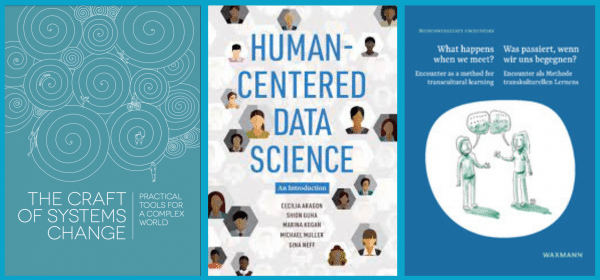
Book covers of some recently published books
And at Book Sprints we also published an article at Common Place. In this article, we discuss a Book Sprint as a concurrent editorial process. Workflow concurrency enables multiple people to perform different tasks on the same work simultaneously. During a Book Sprint the stages of conceptualising, structuring, drafting, and editing content are iterative and overlapping.
News from the Sprint Lab
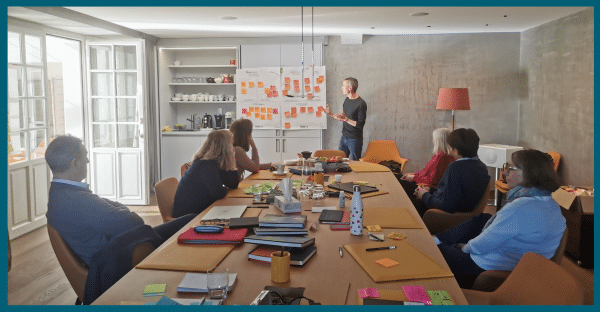
Concept Book Sprint with MAVA Foundation
During the spring we worked with colleagues from the MAVA Foundation for the third time, in a stunning location on the shores of Lake Geneva. This time, we convened for a new format: a Book Concept Sprint. In just two days, the participants developed a comprehensive vision, concept, and structure for a book detailing MAVA’s legacy. This framework was then approved by the board, paving the way for the actual writing of the book, which was placed in the hands of a hired writer. The writer participated in the Sprint, and already drafted the first paragraphs from some of the chapter outlines, to be commented on by the MAVA participants. The Concept Sprint left both parties confident that the book objectives would be achieved and with a clear process to guide the next steps in bringing the book to life.
We reunited with faculty members from the University of Hawai’i at Manoa to write the second part of the OER Anatomy and Physiology textbook. Seeing everyone’s faces again felt like a class reunion, and it was a pleasure to collaborate once more. This book is unique in that it incorporates local history, society, and ecology of the Hawai’ian islands into its content. In addition, it offers a variety of study tips, check questions, retrieval boxes, and deep dives, all of which aim to help students memorize vast amounts of specialist knowledge, including the minutest details. The book is also a cost-effective option for students across the islands, as it reduces the expenses of learning materials.
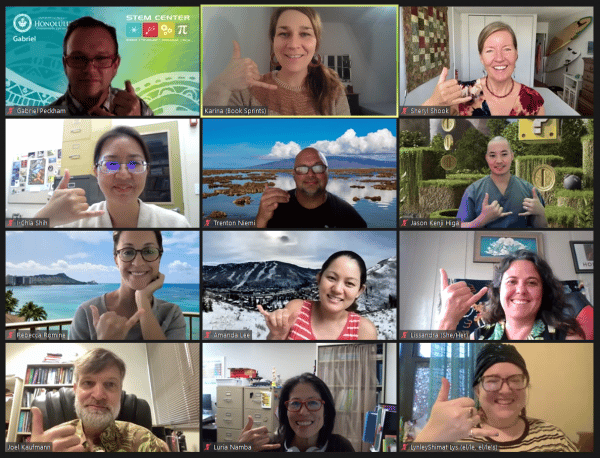
Participants of the OER textbook Sprint
Our facilitator Faith Bosworth ran a writing retreat with faculty members from Georgia Institute of Technology. Unlike a Book Sprint, where a diverse group collaborates to write a book together, the participants dedicated themselves to their individual writing projects. They mapped their objectives, presented their content outlines to the group, and transitioned between phases of solo writing, accountability groups, and peer review. It was inspiring to witness the collective effort to refine individual ideas and support one another in achieving their goals.
Meeting the community
In October we attended the PageBreak conference in San Francisco with a presentation about radical approaches to accelerating publishing processes. The conference is driven by the publishing community, drawing on the strengths of Books in Browsers and embracing innovative technologies, workflows, and processes. We enjoyed two days of talks and panels, with ample opportunities to network, learn, brainstorm, and socialise.
We also met up with colleagues from the Collaborative Knowledge Foundation and our founder Adam Hyde in Croatia to discuss the latest developments and how we could collaborate to achieve even greater synergy. Overlooking the sea and surrounded by mountains, we also took the time to celebrate that we managed to transform our company during the pandemic, keep our team on board, and produce some beautiful books with our clients.
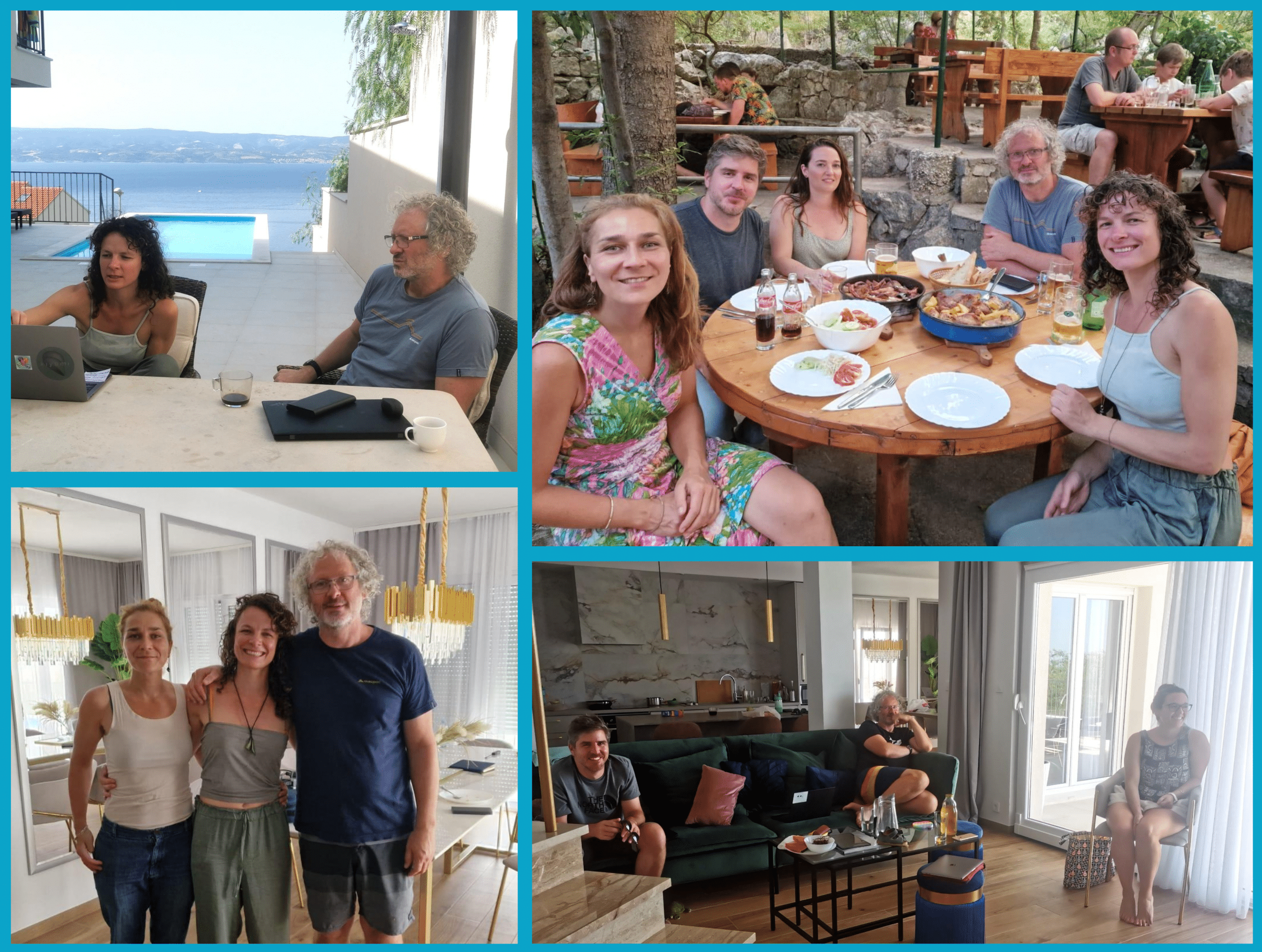
Book Sprints & Coko team meeting in Croatia
What’s next?
We are proud of last year’s achievements and excited about what the future holds. One exciting development is a new process for book websites. Since our tool for layout and book design, paged.js, is based on HTML, it is a small step from creating print PDFs and EPUBs to also making websites. From zero to website in 5 days. We are now offering this service to our clients and can’t wait to see many more websites coming out of Book Sprints in the near future. Here are examples of books made with paged.js including some web books.
If you have sprinted a book with us and now want to build a website out of it, or if you have other ideas for writing projects, please feel free to reach out to us at contact@booksprints.net.
